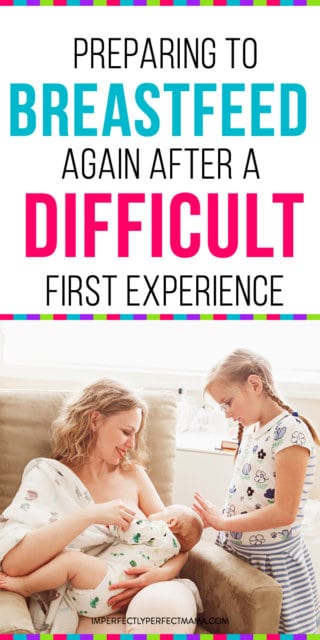What comes to mind when you think of the word ‘breastfeeding’?

Is it joy? Happiness? Excitement? If you answered yes to any of these, I’m going to suggest this article might not be for you.
The things that come to my mind when thinking about breastfeeding are: anxiety, pain, guilt… just to name a few.
Being a first-time mother has so many difficulties and stresses. But the difficulties of breastfeeding can arise even before your baby is born.
During pregnancy we are bombarded with the “breast is best” crap from day one. From our doctors, midwives, nurses, mothers, aunts, sisters. It’s everywhere!
The expectation to breastfeed is put on us during pregnancy and we assume, because we are women, we will naturally be able to meet it once the baby arrives.
So what happens to that first-time mom when her baby is born and all of a sudden, all that energy she spent building up the excitement and pride around breastfeeding comes crashing down around her because her breasts won’t produce enough milk or the baby won’t latch at all?
Sure, the beginning of breastfeeding for the first time is a learning curve for anyone.
But that mom whose breastfeeding fantasy is crashing around her?
Well, her learning curve takes a steep plunge off the charts right about when other first-time moms might be finally getting the hang of it.
She will probably fight like hell to make it work. Enduring the physical pain of cracked nipples.
Having lactation consultants poke around her breasts, pointing out their deficiencies. Pumping in between feedings at 2:45 am while her partner sleeps peacefully beside her.
The list of difficulties she might experience goes on and on.
Breastfeeding Didn’t Come Easy

I know because I was her.
For me, breastfeeding was hard from the very first moment.
There is a video of me in the hospital, after I had given birth, when my daughter was first trying to latch and nurse.
My mom, sister-in-law and mother-in-law are standing around me, cheering the baby on and commenting on how great she is latching.
Someone asks me, “Does it feel ok Anna?”
I sort of make an awkward mumble of uncertainty and say something like, “Uhh yeah, well it kind of hurts… but oh, now it’s better…”
I was lying. It hurt like hell and felt unnatural.
But I didn’t have the courage to say that because everyone was so in awe of the baby and I thought I was probably just doing it wrong.
From then on, my breastfeeding experience can be summed up by the following issues. Some are common first-time breastfeeding experiences and others were unique to the context of my life:
- The physical pain of my sensitive nipple skin being ripped open, without time to heal in between feedings
- An unavoidable week-long hospital stay, 12 days postpartum, for an unrelated condition I had. This meant forcing my baby onto the bottle and the beginning of my nightmare relationship with pumping
- Engorgement
- Low supply
- Plugged milk ducts
- Bi-weekly visits to the lactation consultant that went on for months
- A 16 pill per day regimen of medications and supplements
- Significant weight loss for my baby
- Postpartum anxiety and depression for me
The list could go on and into much detail but those were the major problems I was up against from day one.
Eventually, the doctor insisted we start supplementing with formula to increase my baby’s weight. This felt like a failure to me.
We did add formula into her diet but I continued to push breastfeeding over formula for a while.
Around 7 months, I hit my breaking point.
I knew I just couldn’t meet that expectation anymore. It was so hard to let go and to this day I still feel some guilt or sadness when I think about not being able to provide her the nourishment she needed.
But, life moves on and I soon began to appreciate the wonders of modern science that created formula. I began to appreciate the freedom bottle feeding gave. And I began to understand and accept the difference between expectation and reality.
Two years later, here I am, almost 20 weeks pregnant with another girl!
And of course, like with my first pregnancy, breastfeeding is weighing heavily on my mind.
I want to try again. Not to prove I’m not a failure or re-write history. Honestly, I want to try again because breast milk is free and money is tight around here.
Yes, I am also hoping that if breastfeeding works out I’ll get to experience some of those magical moments of connection and bonding that women talk about.
But I’m not holding my breath.
I am, however, going to prepare this time for breastfeeding!
Taking from my experience and the knowledge I gained along the way, here is how I am preparing to breastfeed again after my difficult first experience:
Preparing Emotionally
Preparing emotionally can only begin by coming to terms with the past breastfeeding experience. This is not easy work and takes time.
For me, it looked like breaking down the ‘failure’ label and letting it go.
As well, I began examining what influenced my emotions during that difficult time. Things like society’s expectations, hormones and sleep deprivation came to mind…
Once I was able to separate my emotions from the facts of the situation (my baby’s health, my mental health, etc…), then I was able to eventually accept what happened.
One important part throughout this process was having a friend going through a similar experience with her first baby, who was born a few months after mine.
Through confiding in each other and working through the emotional wreckage breastfeeding had left with us, I was later able to extract some learnings and points of growth from my story.
That friend helped validate me as a mother, regardless of my ability to breastfeed.
She helped me see the ridiculousness of society’s obsession with equating breastfeeding with some divine, ultra-feminine super power that is beautiful and pure (can you hear my eyes rolling?!).
We agreed over many coffees that there is nothing beautiful or pure about trying to hand express milk into a spoon at 3:00 am on one of the first nights you’re home from the hospital because you’re desperate to feed your baby that won’t latch.
All this to say, to prepare emotionally must include a support system.
This time around, I will tell the truth if someone asks how breastfeeding is going. I will reach out before my anxiety and depression overcome me. And I will continue to surround myself with people who will not shame me if I choose to stop breastfeeding after day 1.
Preparing Mentally

Preparing mentally is all about logical and rational thinking over emotional reactions.
This doesn’t mean you should deny your emotions and not feel them. That’s unhealthy and quite frankly impossible when you’ve just given birth.
What I mean is that, if breastfeeding isn’t going well and those intense emotions of guilt or failure arise, reminding yourself that there are logical and rational solutions available to you is key.
For instance, knowing that formula is a healthy option that will not harm your baby. It, in fact, will do the opposite. Formula is OK.
I repeat, formula is OK!
If you need to ask your partner to bottle feed for one night to save your sanity so you can give breastfeeding another go tomorrow after a good sleep, that is OK. It’s more than OK actually. It’s proactive and responsible.
Above all, your ability to breastfeed does not equal your worth as a mother. I don’t need to have a PhD in science or philosophy to know that that is a fact of life, and a logical one at that.
However, it is hard to separate these truths from our emotions, especially when hormones are going crazy and our babies are crying.
If you’re worried you will be unable to think logically or rationally when you’re deep in the middle of it all, why not write them down now and keep that list beside your bed or next to the chair you plan to nurse in.
No one tells you to be logical or rational as a first-time breastfeeder. It’s suggested that it will be all about the magic and wonders of motherhood and that you should embrace it wholly.
But, over here in the real world, going into breastfeeding with these mental mindsets is crucial for managing the overload of emotions that comes with a new baby.
Preparing Physically
Preparing physically is about the pain that can occur in your breasts while breastfeeding.
Things such as cracked and raw nipples, engorgement pain, blocked milk ducts and pain from mastitis are worth thinking about beforehand.
For me, this was a major issue in my first breastfeeding experience. So to prepare for the anticipated physical pain, I am taking these actions:
- Purchasing a nipple shield and bringing it in my hospital bag. I know they are a debated topic in terms of creating ‘nipple confusion’ but honestly, using a nipple shield saved me from so much unnecessary pain. Do your research and make your own decision but know that this too is a logical and rational answer to a very terrible problem.
- Finding the right nipple cream. I can’t tell you how many different ones I tried in the beginning. Some are so sticky and hard to put on, others feel like there’s nothing there after you apply, and some straight up don’t work. Test a few out and find your favourite. Pass along the ones that aren’t right for you to another mom who might benefit. Then have your favourite with you wherever you go once baby arrives, just in case you need that relief.
- Reading up on how to deal with engorgement and blocked milk ducts. Do this now so that you’re not doing it in the middle of the night because you can’t sleep from the pain. Read about tips on how to prevent them as well. Be ready to take action quickly and confidently if you experience any of the symptoms while breastfeeding.
- Be aware of the signs and symptoms of mastitis. Thankfully, I never experienced it in my first try at breastfeeding. But it may happen this time and it is not something to take lightly. Similar to the last point, be prepared to take action quickly to save yourself the time and energy that could be going towards your mental health or sleeping!
Being prepared for the physical aspects of breastfeeding is high on my priority list.
The pain I felt previously created such a deep resentment towards breastfeeding and I don’t want that to get in the way again if everything else is going well.
We’ve Got This!

I hope these tips help you start to prepare for breastfeeding again, especially if you had a difficult first experience.
If your story was anything like mine, I know you’ve got a lot of hard work to do to wrap your head around trying again.
But, if we start now and reflect on that previous experience, pulling apart all the pieces that came together to make it so difficult, we can approach breastfeeding with a positive, proactive and realistic outlook.
Most of all though, we can approach breastfeeding from a place of power.
We know now that breastfeeding is not a requirement we must meet in order to satisfy others. It is not more important than the health of our babies or state of our own mental health. Nor does it determine our worth or ability to mother our children.
Breastfeeding is a ‘maybe’. Survival is not.
I think knowing what is right for you and your baby is the true divine, ultra-feminine superpower we mothers have. And when we act on it, that can be so beautiful and pure.




Leave a Reply